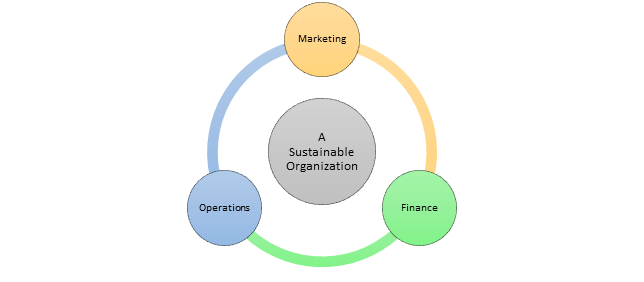- Jan 2, 2025
- 4 min read
Updated: Dec 2, 2025

If you are a parent, you are an operations manager. If you oversee the bills in a home, you are an operations manager. Or if you do something as routine as driving a car, you are an operations manager. Operations are a continuous process…that involves efforts like that of a parent. Setting aside the time, nurturing with love, and using available funds to care for a child(ren). To mature and develop, a child must have the appropriate structure along with managers (parents/guardians) who encourage them to be successful in their lives. When they are not productive or trending in the right direction, their managers will guide and help them to reduce, if not, eliminate situations that do not add value to their lives.
As a business leader, performing operations management can be thought of in the same way. Leadership and management that wants to increase profits and reduce expenses via efficient, targeted operations will benefit by adopting the ‘parent-child’ concept. In other words, an organization cannot operate to its full potential without three core management functions. I think of the three core functions of marketing, operations, and finance as the “time, love, and money” parent-child concept. Businesses need that tender loving care, just as children do. As recently mentioned in 3 Core Management Functions of a Sustainable Organization, they are the main management functions all organizations perform to create their goods or services and they are necessary for the organization’s survival.
In this discussion, we will go a bit more in-depth and focus on one of the three central core management functions: operations management. There are ten strategic operations management decisions that an operations manager is responsible for are:
1. Design of goods and services
2. Managing quality
3. Process and capacity strategy
4. Location strategy
5. Layout strategy
6. Human resources and job design
7. Supply chain management
8. Inventory management
9. Scheduling
10. Maintenance (Jay Heizer, 2017, p. 8)
Have you had any experience with either one of these ten decisions? Possibly more than one? Does any of these decisions remind you of something you perform at your job?
If you have experience running an organization, you may have been exposed to these ten management decisions, or realities, that operations managers deal with. These decisions should be considered, evaluated, and applied favorably and effectively. Neglect can lead to missed opportunities, wasted time, frustration, aggravation, …. the whole gambit.
Aspiring or current operations managers have ten major decisions to make and attempt to synchronize them in a manner that reduces costs and increases productivity. This is in addition to collaborating with the marketing and financial managers as each manager jockey for funding for resources and funding for their respective functions. For instance, an operations manager may need to increase sales to a target rate that is too high for the marketing department to maintain demand at a high level and the funding may not be approved by the finance department. Procurement managers may need to know details of the product or service when furnishing contract agreements or making purchase orders. Operations managers will have to work closely with procurement managers once the service or product has been developed and tested, so knowing what the organization can distribute within required delivery or response times becomes critical. This can sometimes be the difference between gained or lost market share.
A good operations manager will develop a game plan or strategy for the function that steers the organization in a direction that leads to competitive advantage. Competitive advantage implies the creation of a system that has a unique advantage over competitors (Jay Heizer, 2017, p. 36). The key to the operations management function achieving competitive advantage is to win on cost, differentiation, and response (delivery) time. These are strategic concepts that if applied can lead to competitive advantage over competitors. The organization that provides uniqueness, are able to spread their costs, and speed up their response times can create a sustainable competitive advantage. Designing operations that beat expectations internally and externally will not go unnoticed by management and the organization’s customer base.
Improving quality through continuous improvements, hiring skilled and experienced staff, compliance with requirements of the client, reducing expenses, and improving productivity can widen the gap of the sustainable competitive advantage and increase profits the organization will enjoy! Remember, all organizations need an operations function, but they may almost never be the same. Be unique. Seek differentiation. Keep your costs relative to quality of the product or service, and in line with the market.
References
Jay Heizer, B. R. (2017). Operations Management: Sustainability and Supply Chain Management, 12th Edition. Pearson.
Smith, N. (2024, April 22). 3 Core Management Functions of a Sustainable Organization. Saint Petersburg, Florida, USA.
Smith, N. (2024, August 3). Strategy: A Pathway to Organizational Success. Saint Petersburg, Florida, USA.

Meet Nikia Smith, Director of Project Management Office (PMO), driving success at Business and Wealth Generations. With over a decade of advisory expertise, Nikia orchestrates strategy and operations, spearheading growth and innovation. Beyond his professional endeavors, Nikia actively participates in his community, having served on the Board of Directors at the Project Management Institute Florida Suncoast Chapter in different roles for several years. Recognized for his contributions, he received the PMI Florida Suncoast Chapter Award in 2018 for significantly boosting membership and retention and was also selected to attend the 2019 PMI North America Leadership Institute Meeting in Philadelphia. Nikia holds a bachelor’s degree in management and organizational leadership with a focus on Project Management, alongside several business certificates from St. Petersburg College. He is also certified in CAPM and PMP by the prestigious Project Management Institute. For collaboration opportunities, reach out to Nikia at info@thebusinesswg.com.



